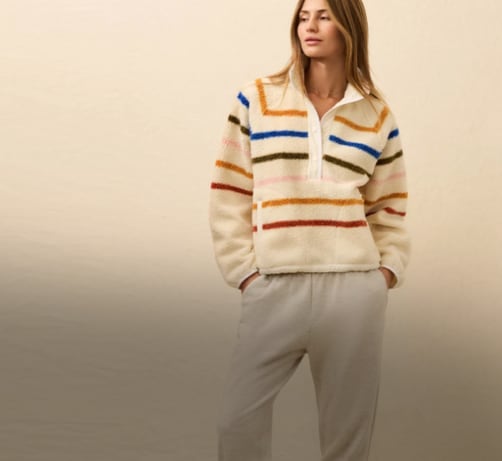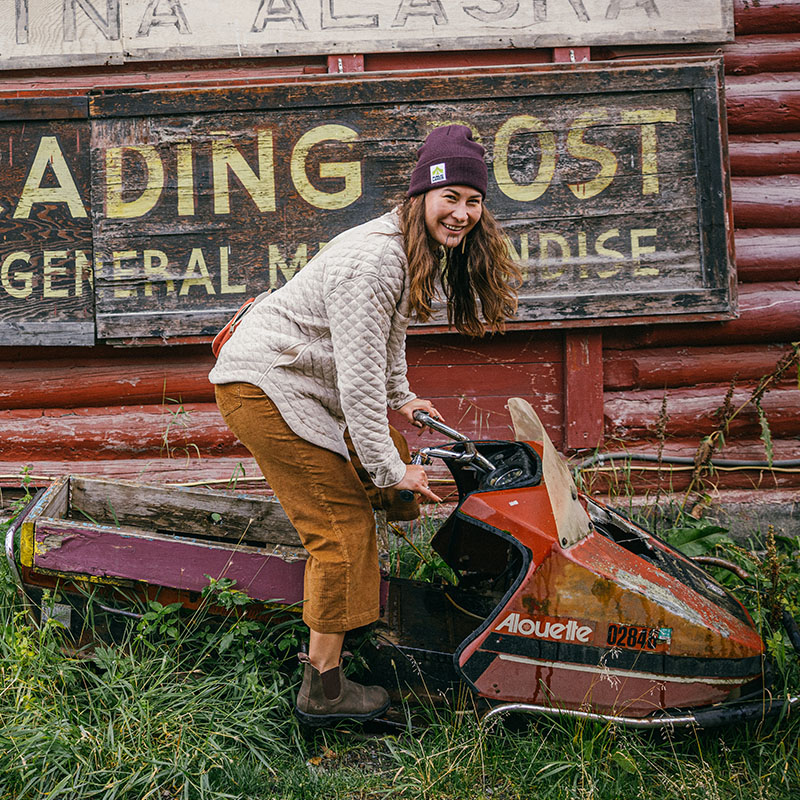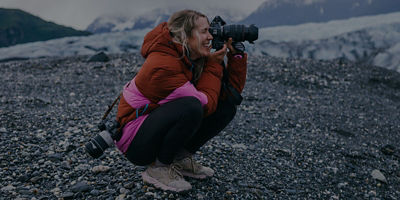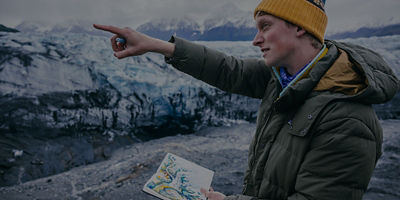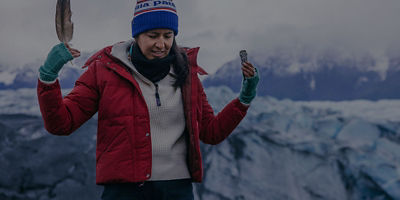
Public Lands: First, can you please share a little bit about yourself?
Deenaalee: Ade’ Deenaalee siezre, which means “Hi, my name is Deenaalee Hodgdon” in Deg Xinag, the language of the Deg Xit’an Peoples here in Alaska. I’m Deg Xit’an on my mother’s side, from the lower Yukon River in the village of Gitr’ingithchagg (Anvik). On my father’s side, I’m from the village of Qinuyang (South Naknek) in Bristol Bay. I was also raised on the Lower Tanana Dené Lands in Fairbanks, Alaska where I’m speaking from today. All of these lands have deeply influenced the way that I walk through the world.
Public Lands: Can you share more about your relationship with salmon?
Deenaalee: I come from two Nations that are deeply intertwined with the health and well-being of Salmon Nations. Bristol Bay, home to Sugpiaq, Yup’ik and Dena’ina Peoples, holds the world’s last remaining wild sockeye salmon harvest and abundant chinook run. We are working diligently to protect this wild harvest from the devastation that other fisheries have witnessed. Salmon are a vital part of our lives in Bristol Bay from both a cultural and economic perspective. For the last six years I have been working as a commercial fisherman on the Nushagak River — one of the five fishing districts in Bristol Bay. Commercial fishing has allowed me to survive in a cash economy and maintain my relationship to salmon each summer.
On the Yukon River, our lives as Deg Xit’an People are also intricately tied to salmon and this is reflected in our language. Instead of months being based on the Gregorian calendar of 28-31 days, each season in Deg Xinag relates to the movement of salmon through the waters in our region. The Yukon River is most known for king salmon and when my mom was younger, the kings returning to the Yukon River were huge — between 3 and 6 feet long!
Public Lands: What are some of the changes you’ve seen related to salmon?
Deenaalee: We’re in a crisis right now where we’re actively experiencing the loss of salmon on the Yukon River and our people are unable to participate in our traditional way of life in relation to salmon. This past year, Anvik, my maternal village, was only able to participate in one emergency harvest with an allocation of only a few fish per household. There are many reasons for closures of subsistence harvest on the Yukon including rising sea temperatures, ocean acidification, poor management of the river and bycatch from bottom trawlers in the Bering Seas.
There are also inequities when it comes to who can fish in Bristol Bay. Bristol Bay operates on the limited entry permit system which means there are a limited amount of commercial fishing permits available and there are three types of permits: Local (those living in Bristol Bay), Non-local (Alaskan residents living outside of Bristol Bay) and Non-resident (those living outside of Alaska). One important distinction here is that “Local” doesn’t necessarily mean Native or Indigenous, just that someone legally resides in Bristol Bay. Additionally, when these permits were first issued in 1975, only 38% of the permits were Local, 22% were Non-local and the remaining 40% were Non-resident. Over time, Alaskan individuals facing high cost of living and limited access to resources have had to sell their Local permits and in 2021 over half of the Bristol Bay fishery permits were owned by Non-residents while Local permits were only 16% (see full report here). Our ability as Indigenous peoples to steward and harvest this amazing renewable nation of salmon is not in our hands anymore.
It’s a privilege to feed the world fish from our waters but we can’t do that if we can’t feed our own people first and our own freezers are not filled right now. We need to make sure that decisions made at the local, state and international levels ensure a healthy ecosystem and food and cultural sovereignty.

